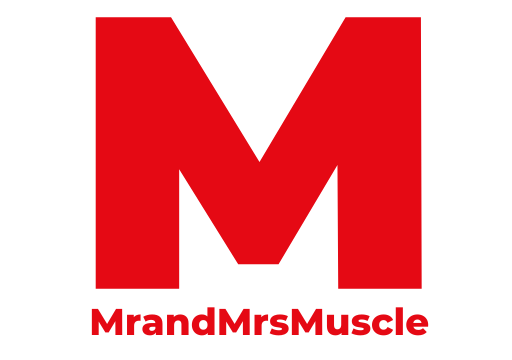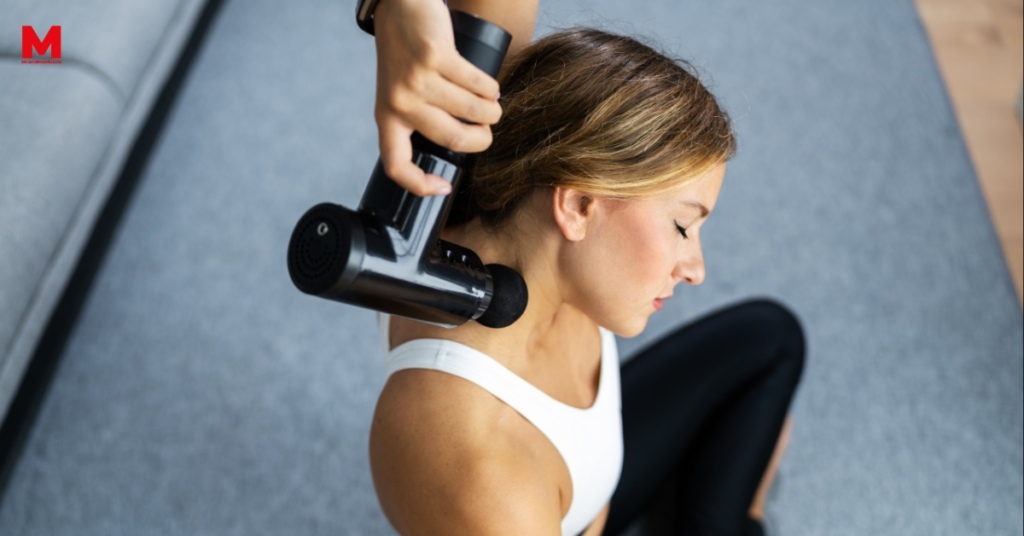Are you dealing with sore muscles? Whether it’s from an intense workout or a day of hard labor, soreness can be incredibly uncomfortable. Fortunately, there are simple steps you can take to quickly relieve sore muscles and get back to feeling your best. In this article, we’ll share six easy and effective ways to alleviate sore muscles fast. Keep reading to learn how to relieve sore muscles fast!
Why do our muscles get sore and is it a good or bad thing?
Have you ever experienced sore muscles after a workout? It’s a common occurrence for many fitness enthusiasts. When we exercise, we put our muscles under stress and cause tiny tears in the muscle fibers. This is what causes the feeling of soreness.
But is soreness a good or bad thing? It’s actually a sign that your muscles are adapting and growing stronger. However, it’s important to note that extreme soreness or pain could indicate an injury and should be treated accordingly.
So, what helps sore muscles? While rest is important for recovery, there are also some tips and tricks to relieve soreness faster. These include warming up and cooling down properly, staying hydrated, eating a nutritious meal after a workout, getting a massage, and incorporating active recovery into your routine. By following these tips, you can help alleviate soreness and get back to your workouts faster.
1) Warm up and cool down properly
One of the most important things you can do to relieve sore muscles fast is to warm up and cool down properly before and after your workout. This not only helps to prevent injury, but it also aids in muscle recovery.
When you warm up, you are gradually increasing your heart rate and blood flow to your muscles, preparing them for the workout ahead. This helps to loosen up your muscles, making them more flexible and less prone to injury.
Some warm up exercises you can include in your routine are:
– Light jogging or brisk walking for 5-10 minutes
– Dynamic stretches such as leg swings, arm circles, or hip rotations
– Bodyweight exercises like squats, lunges, or push-ups
Cooling down after a workout is just as important as warming up. It allows your heart rate and blood flow to gradually return to normal, preventing dizziness and promoting muscle recovery.
Some cool down exercises you can try include:
– Light jogging or walking for 5-10 minutes
– Static stretches for your major muscle groups, holding each stretch for 20-30 seconds
– Foam rolling or using a massage ball to release tension in your muscles
By incorporating a proper warm-up and cool-down routine into your workouts, you can help reduce muscle soreness and promote faster recovery. Remember, prevention is key when it comes to sore muscles after a workout, and taking the time to warm up and cool down can make a significant difference in how your body feels post-workout.
2) Stay hydrated
One of the most important things to remember when trying to relieve sore muscles is to stay hydrated. Hydration plays a crucial role in muscle recovery and can significantly help in reducing muscle soreness after a workout.
When we exercise, our muscles generate heat, causing our bodies to sweat. This sweating leads to fluid loss, and if we do not replenish our fluids, we become dehydrated. Dehydration can contribute to muscle soreness and slow down the recovery process.
Drinking water before, during, and after a workout helps to replace the fluids lost through sweat and keeps our muscles functioning optimally. Additionally, staying hydrated helps to maintain the elasticity of our muscles, reducing the likelihood of cramping and stiffness.
To stay adequately hydrated, it is recommended to drink at least eight cups of water per day, or more if you are engaging in intense physical activity. Additionally, you can incorporate other hydrating fluids such as sports drinks or coconut water into your routine. Remember, staying hydrated is not only important during your workout but throughout the day to support muscle recovery.
3) Eat ASAP after an intense workout
One of the most effective ways to relieve sore muscles after a workout is to eat as soon as possible. Consuming a balanced meal within 30 minutes of an intense or long workout can help speed up the recovery process significantly. This is because our muscles require essential nutrients to repair and rebuild themselves.
To maximize the benefits, it is recommended to consume around 20-40 grams of protein and 20-40 grams of carbohydrates within that 30-minute window. Protein plays a crucial role in providing the necessary amino acids for muscle rebuilding, while carbohydrates help replenish fuel stores.
It’s also important to note that consistent daily protein intake is essential for muscle recovery and growth. The International Society of Sport Nutrition recommends consuming 1.4-2 grams of protein per kilogram of body weight every day, spread out over multiple meals every 3-4 hours.
By prioritizing post-workout meals and ensuring a consistent intake of protein throughout the day, you can provide your muscles with the nutrients they need to recover faster and reduce soreness. So next time you experience sore muscles after a workout, remember that what you eat can make a significant difference in your recovery process.
4) Massage your muscles
Massaging your muscles is a great way to relieve soreness after an intense workout. A deep tissue massage can increase blood flow, which helps to bring oxygen and nutrients to the muscles that need it most. This can reduce inflammation and alleviate pain.
If you can’t afford a professional massage, you can still get some relief by using a foam roller or a tennis ball to work out the knots in your muscles. Start at the base of the muscle and work your way up, using gentle pressure to ease tension. Be careful not to apply too much pressure, as this can make the soreness worse.
You can also try using a heating pad or taking a warm bath to help loosen up your muscles before massaging them. This will help to increase blood flow and make the massage more effective.
Remember, massaging your muscles is just one of the many things you can do to help relieve soreness. Be sure to also warm up and cool down properly, stay hydrated, eat well, and get plenty of rest. Combining these tips will help you feel better faster and get back to your workouts sooner.
5) Sleep
One of the most important things you can do to relieve sore muscles fast is to get enough sleep. Sleep is when our body repairs and regenerates, and this includes repairing the microscopic damage to our muscles that occurs during exercise. Lack of sleep can slow down the recovery process and make sore muscles last longer.
During sleep, our body releases growth hormone, which is crucial for muscle repair. It also helps reduce inflammation, which can contribute to muscle soreness. Aim for 7-9 hours of quality sleep each night to maximize muscle recovery.
To improve your sleep quality, establish a consistent bedtime routine. Create a relaxing environment by keeping your bedroom cool, dark, and quiet. Avoid electronic devices, caffeine, and heavy meals before bed, as they can interfere with sleep.
Additionally, consider investing in a supportive mattress and pillows to ensure proper body alignment during sleep. A comfortable sleep position can help alleviate muscle tension and promote better recovery.
In summary, adequate sleep is essential for relieving sore muscles fast. It allows our body to repair and rebuild, reduces inflammation, and promotes overall recovery. Make sleep a priority in your muscle recovery routine, and you’ll notice a significant difference in how quickly your sore muscles heal.
6) Do active recovery
Active recovery is a crucial aspect of muscle soreness relief and overall muscle recovery. When our muscles are sore, it can be tempting to simply rest and do nothing. However, engaging in active recovery exercises can actually promote faster healing and alleviate soreness.
Active recovery involves low-intensity exercises that increase blood flow to the muscles, delivering nutrients and oxygen while flushing out waste products. This helps reduce inflammation and promote healing. Additionally, active recovery helps prevent muscle stiffness and promotes mobility.
Examples of active recovery exercises include light jogging or cycling, gentle yoga or stretching, swimming, and low-impact exercises such as walking. These activities help increase blood flow and gently stretch the muscles, relieving tightness and reducing soreness.
What helps sore muscles is to engage in active recovery as soon as possible after a workout or strenuous activity. This can be done on the same day or the day after, depending on the intensity of the exercise. Aim for at least 10-15 minutes of low-intensity activity, gradually increasing the duration as your muscles recover.
Remember, active recovery should not be intense or cause additional muscle fatigue. It should be gentle and enjoyable, allowing your body to recover without putting extra stress on the muscles. By incorporating active recovery into your routine, you can speed up muscle recovery and alleviate soreness, allowing you to get back to your workouts sooner.
Summary
Sore muscles can be uncomfortable and hinder daily activities, but there are many ways to alleviate the pain and speed up recovery. From proper warm up and cool down techniques to staying hydrated and eating after exercise, there are plenty of ways to help your sore muscles heal faster. Massaging the affected area and getting enough sleep can also be effective in reducing muscle soreness. By practicing active recovery and incorporating these tips into your routine, you can alleviate soreness and continue pushing yourself to new fitness levels.


